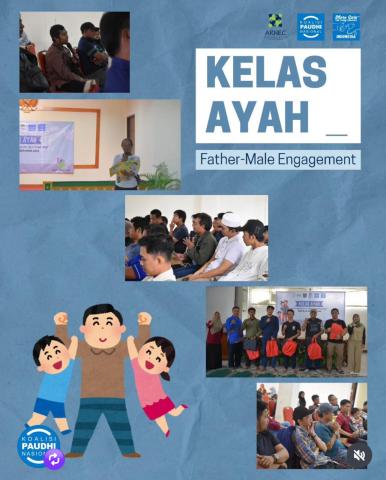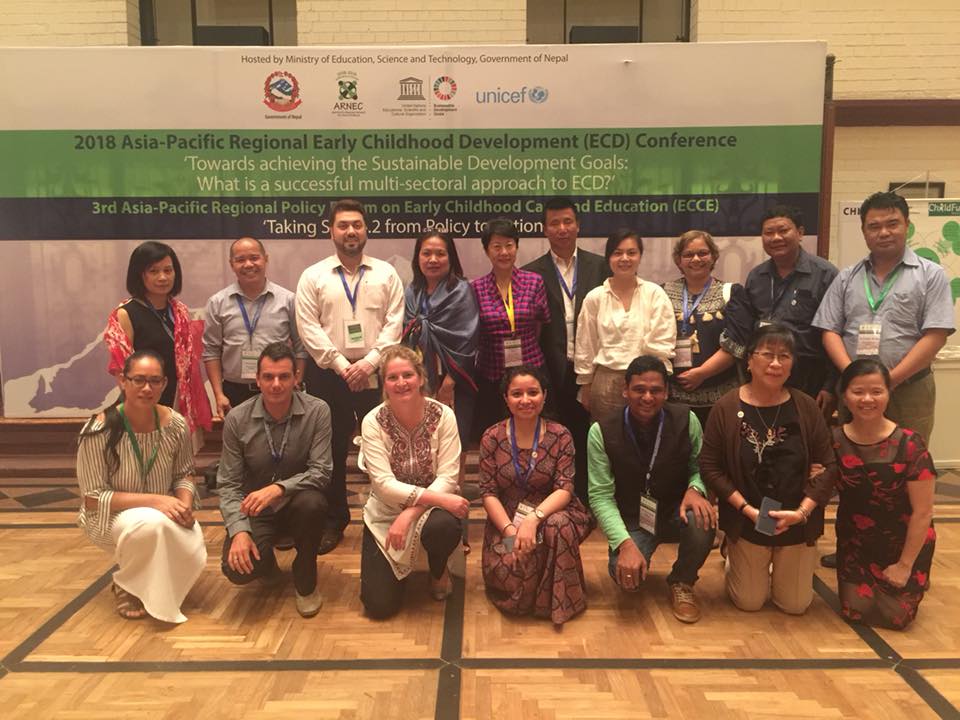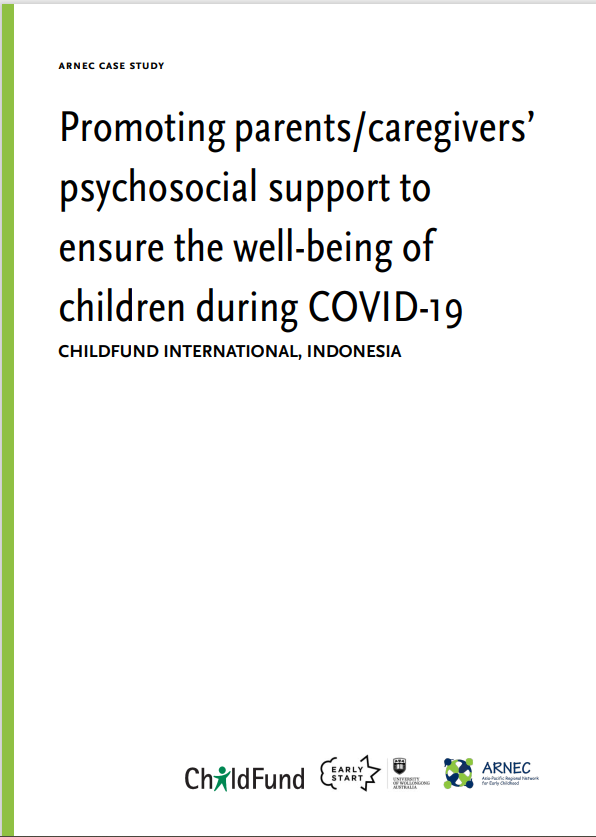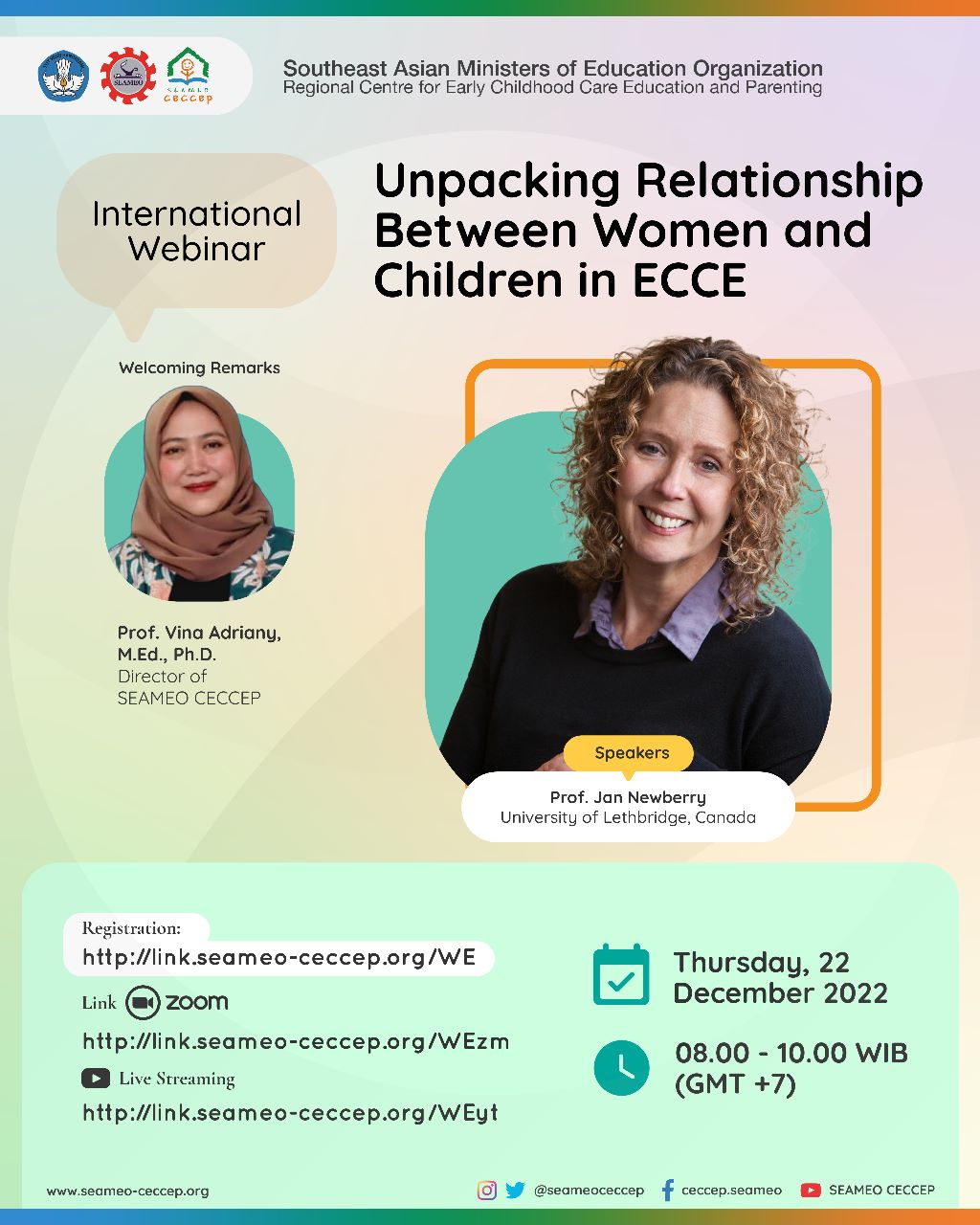
Indonesia
ECCD is a priority in Indonesia with the 2003 inclusion of Early Childhood Development (ECD) within the National Education System Law No. 20, a Presidential Declaration on Holistic and Integrated ECD (HI-ECD), and launching of the first National ECD Census in 2011. The issuance of the HI-ECD by Government of Indonesia is an essential step in ensuring coordination across different provinces and administrative unit.
Early childhood education (ECE), in particular, is a priority. ECE has been included in key policy documents, including the National Education System Law No. 20 in 2003 and the Ministry of Education and Culture’s Strategic Plan (RencanaStrategis or RENSTRA) in 2014.
Indonesia is one of the countries with experience of community involvement in expanding the availability of ECCD. Furthermore, community participationin ECCE is dominant in Indonesia as it comprises of at least 95% of enrolment in 2013 (from total 195,000 ECD centers throughoutIndonesia[PC1] ).
To expand access of children under 6 to ECD services, governmentof Indonesia has promoted 1 villageone ECD centers, however, among 88,000 villages in Indonesia, there are stillaround 22,000 villagestilldo not have ECD centerand 28% childrenunder 6 doesn’tgetany ECD services.
Challenges
- Lack of awareness and understanding about ECD among leaders.
- Lack of effective investment strategy and coordination among actors and stakeholders.
- Lack of leadershipand courage on ECD. Lack of methodology, model, and methods of innovative ECD that is Indonesia-contextualized; at times best practices were not sustained
Priorities
- Capacity building and promotion among policy makers, managers, practitioners.
- Monitoring and evaluation to facilitate strategic investment on ECD. Inclusive ECD that supports the neediest.
Stay tuned as we'll be publishing the updated Country Profile soon.
Ministries in charge
- National Development Planning Agency: Coordinates Planning of All Ministries on ECD, Coordinate in developing National Strategies and National Development Plan. Coordinating Ministry for Human Development and Culture coordinates ECD programs across sectorial ministries.
- MinistryofEducationandCulture
- Ministryof Religious Affairs
- Ministryof Health
- MinistryofSocialAffairs
- MinistryofWomenEmpowermentandChildProtection
- MinistryofHomeAffairs
- MinistryofVillage
- National Family Planning Agency.
Key responsibilities:
- Education & parenting àMoE, MoRA, Family Planning Body
- Health àMoH Social issues (disabled children and poor families) àMoSW
Key Policies
- Child Protection Law Number 23/ 2002
- National Education System Lawnumber 20/ 2003
- National Strategy on Holistic Integrative ECD) 2006
- Education Ministry Regulation no 58, 2009 on PAUD HI standards Presidential Regulation no 60, 2013 on Holistic Integrative ECD
National ECD Network
National Representative

Mr. Widodo Suhartoyo
Wsuhartoyo12@gmail.com
Noteworthy Practices
1. Mother-tongue based preschool education (By Sulima Foundation)
Noteworthy aspects:
- Introduction of mother-tongue languages early on ensures a solid foundation for children’s future success.
- Achievements: Services provided include mother-tongue based curriculum, teacher training, assistance for curriculum adaptations into other languages.
2. PosYandu community-based health service for under-5 (By Wives organization or PKK)
Noteworthy aspects:
- Service provide once a month monitoring on health and nutrition of under-five children by weighing and giving supplementary feeding. This is a community- and women-led service.
- Achievement: Sustainable services available in sub-village level.
3. ECD centers led by private foundation
Noteworthy aspects:
- High participation of private sector in ECD. Majority of the ECD centers within Indonesia belong to the private foundations. The government has only set up one or two centers in a district with the rest – possibly over 500 centers -are provided by private foundations.
- Achievement: In 2015, there is an increased coverage ECD service of 72% for the total aged 5-6 children which supports school readiness efforts.
Latest Resources
Lorem ipsum dolor sit amet, consectetur adipiscing elit. Aliquam at porttitor sem. Aliquam erat volutpat. Donec placerat nisl magna, et faucibus arcu condimentum sed.


ECD Events
